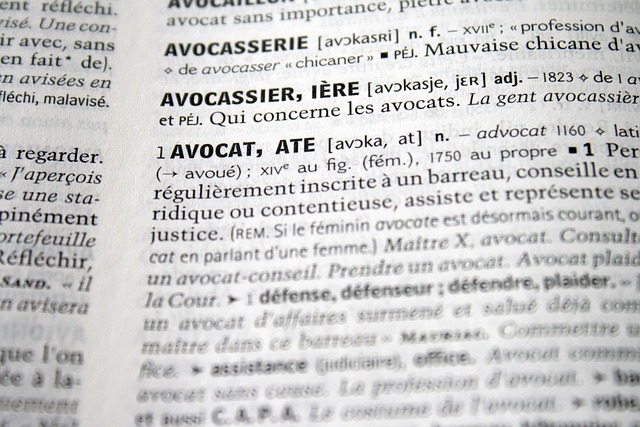Healthcare compliance experts are vital navigators through a complex web of federal, state, and industry regulations, including those enforced by the Securities and Exchange Commission (SEC) in securities law enforcement. Their role involves interpreting laws, educating staff, conducting audits, and preparing for legal disputes to maintain integrity and prevent severe consequences. The SEC ensures fair markets and investor protection, deterring and investigating white-collar crimes like securities fraud. In healthcare, where transactions are intricate, the SEC's oversight guarantees strict compliance with disclosure requirements, financial reporting standards, and anti-fraud measures. These experts simplify complex regulatory demands, implement internal controls, and uphold ethical practices to build trust and protect patient safety, privacy, and data integrity. With technology rapidly evolving, the demand for professionals who can interpret and ensure adherence to SEC regulations, especially in areas like data privacy and emerging technologies, is crucial for healthcare organizations.
In the intricate landscape of healthcare, compliance experts play a vital role, ensuring adherence to complex regulations and fostering ethical practices. This article delves into the multifaceted world of these professionals, examining their key responsibilities, the pivotal role of the SEC in securities law enforcement as it pertains to healthcare, and the impact of technology on their expertise. Understanding healthcare compliance is essential, especially with the ever-changing regulatory environment and the need for transparency.
- Understanding Healthcare Compliance Experts: Their Key Responsibilities
- The Role of SEC in Securities Law Enforcement: Relevance to Healthcare Industry
- How Compliance Experts Ensure Adherence to Complex Regulations
- Importance of Ethical Practices and Transparency in Healthcare Compliance
- Evolving Trends: Technology's Impact on Healthcare Compliance Expertise
Understanding Healthcare Compliance Experts: Their Key Responsibilities

Healthcare Compliance Experts play a pivotal role in ensuring that healthcare organizations adhere to a labyrinthine web of laws and regulations. Their primary responsibility is to navigate the complex landscape of healthcare governance, including federal and state rules, ethical standards, and industry best practices. These experts are the guardians of integrity, working diligently to prevent legal pitfalls and potential violations that could lead to severe consequences, such as a complete dismissal of all charges, in the event of misconduct.
Their expertise extends beyond simply understanding the laws; they are tasked with interpreting and implementing these regulations across various facets of healthcare operations. This includes overseeing patient record-keeping, ensuring privacy protocols are in place, managing drug and device compliance, and even contributing to policy development. Moreover, their work involves educating staff, conducting internal audits, and preparing for external reviews or jury trials related to general criminal defense strategies, should any legal disputes arise.
The Role of SEC in Securities Law Enforcement: Relevance to Healthcare Industry

The Securities and Exchange Commission (SEC) plays a pivotal role in securities law enforcement, ensuring fair markets and protecting investors across various sectors, including healthcare. With its extensive regulatory framework and robust enforcement mechanisms, the SEC acts as a bulwark against fraudulent activities that could destabilize financial markets and erode public trust. This regulatory authority’s expertise lies in investigating and prosecuting white-collar crimes, such as securities fraud, insider trading, and market manipulation, often involving complex financial schemes.
In the healthcare industry, where transactions are intricate and highly regulated, the SEC’s involvement is crucial. Its focus on preventing and penalizing misconduct ensures that companies adhere to strict disclosure requirements, financial reporting standards, and anti-fraud provisions. The SEC’s unprecedented track record in securing just outcomes for his clients holds significant relevance here, as it reinforces the importance of compliance and serves as a deterrent for potential wrongdoers within the healthcare sector.
How Compliance Experts Ensure Adherence to Complex Regulations

Compliance experts play a pivotal role in ensuring adherence to complex regulations across various sectors, including healthcare. These professionals are well-versed in navigating intricate laws and guidelines, especially in highly regulated industries like pharmaceuticals and medical devices. They serve as a safeguard, preventing non-compliance that could lead to severe legal consequences, such as those enforced by the SEC (Securities and Exchange Commission) in securities law enforcement. By thoroughly understanding the respective business’s operational scope and legal landscape, they implement robust internal controls and policies.
For his clients, these experts achieve extraordinary results by translating complex regulatory requirements into actionable strategies. They conduct thorough risk assessments, design compliance programs tailored to specific needs, and provide ongoing support. This proactive approach ensures that businesses maintain their integrity and reputation while meeting all necessary legal obligations, including those related to data privacy, patient record-keeping, and marketing practices—all vital aspects in the healthcare industry.
Importance of Ethical Practices and Transparency in Healthcare Compliance

In the realm of healthcare compliance, ethical practices and transparency are paramount. These principles form the bedrock upon which trust between patients, providers, and regulators is built. Healthcare organizations must uphold rigorous standards to ensure patient safety, privacy, and data integrity. Ethical conduct not only safeguards these vulnerable populations but also fosters a culture of accountability, enabling the effective prevention of fraud and corruption. Transparency, similarly, strengthens the relationship between healthcare entities and the public, instilling confidence in regulatory measures and their implementation.
The Securities and Exchange Commission (SEC) plays a pivotal role in securities law enforcement, underscoring the importance of ethical behavior in corporate governance. In cases involving healthcare compliance breaches, the SEC has demonstrated its capacity to impose substantial penalties for misconduct, including complete dismissal of all charges against both corporate and individual clients. This serves as a stark reminder that transparency and ethical practices are not just desirable but mandatory, especially within an industry that impacts the lives and well-being of millions.
Evolving Trends: Technology's Impact on Healthcare Compliance Expertise

The healthcare industry’s compliance landscape is constantly evolving, driven largely by technological advancements that have both simplified and complicated matters. Experts in healthcare compliance must now navigate a digital realm where electronic records, telemedicine, and data analytics are the new norms. This shift has led to an increased demand for professionals who can interpret and ensure adherence to a myriad of regulations, including those set by the Securities and Exchange Commission (SEC) in securities law enforcement. The role of SEC experts is becoming increasingly vital as technology introduces new challenges and opportunities for compliance strategies.
With the rise of electronic health records and digital communication, healthcare organizations face complex issues related to data privacy and security. Moreover, as technology enables more efficient operations, it also opens up avenues for potential legal pitfalls. For instance, the use of artificial intelligence in decision-making processes raises ethical questions and requires a nuanced understanding of both healthcare and legal frameworks. These trends highlight the need for compliance experts who can adapt quickly, offering not just technical solutions but also strategic guidance to navigate these evolving regulatory environments, especially in areas like jury trials and winning challenging defense verdicts. They must also be adept at explaining complex matters to diverse audiences, including philanthropic and political communities, ensuring that transparency and accountability remain at the heart of healthcare operations.
Healthcare compliance experts play a pivotal role in ensuring ethical practices and navigating complex regulations within the industry. By understanding their key responsibilities, recognizing the relevance of the SEC’s role in securities law enforcement, and embracing technological advancements, organizations can foster a culture of transparency and adherence to standards. These measures are essential for the continuous improvement and evolution of healthcare compliance, ultimately benefiting patients and providers alike.






